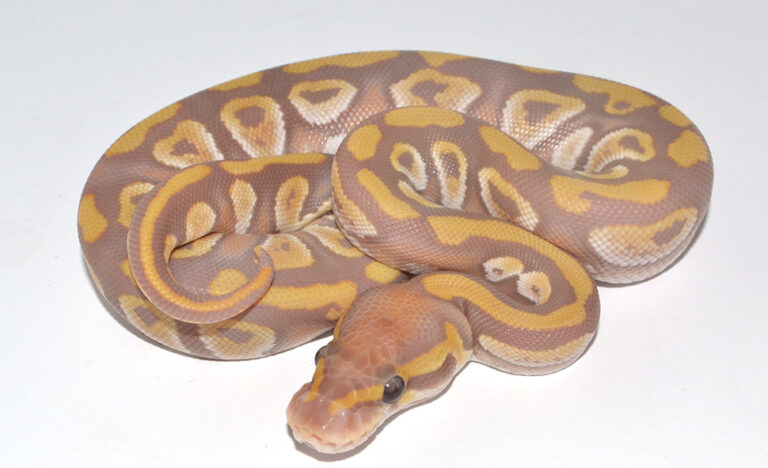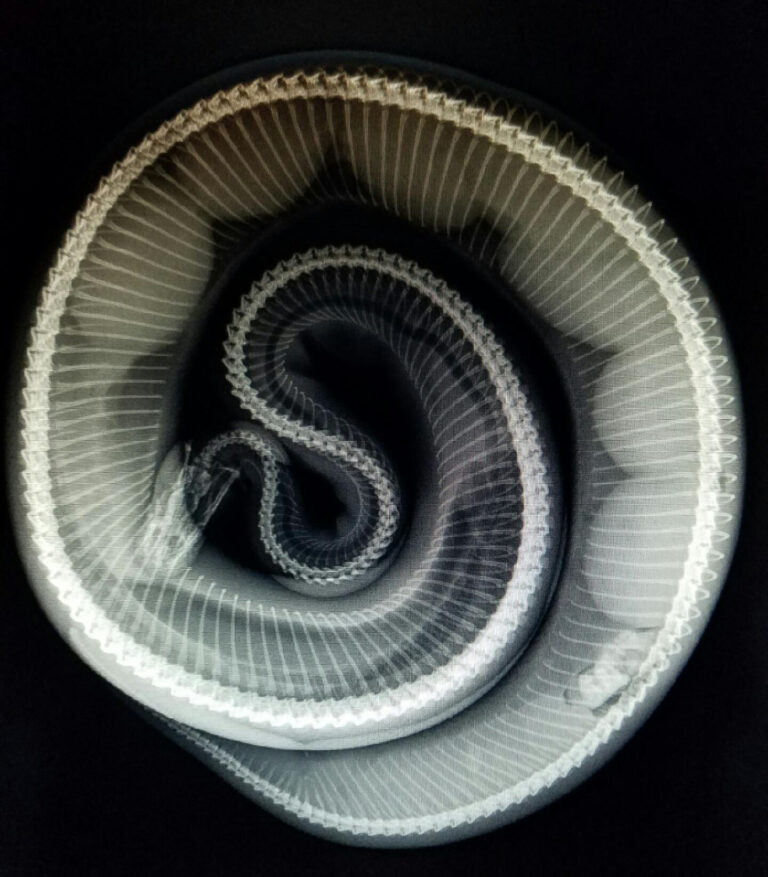Understanding Allelic Genes in Ball Pythons
Last updated: December 17, 2022
Guest Contributor: Warwick Von Hagen of Strictly Snakes / Edited by Justin Kobylka
If you’ve recently discovered the fast growing world of Ball Pythons, you may have come across the concept of allelic genes and wondered, how exactly do they work?
To start, we need to review basic genetics. We’ll use Pastel, an incomplete dominant gene, as our guinea pig.
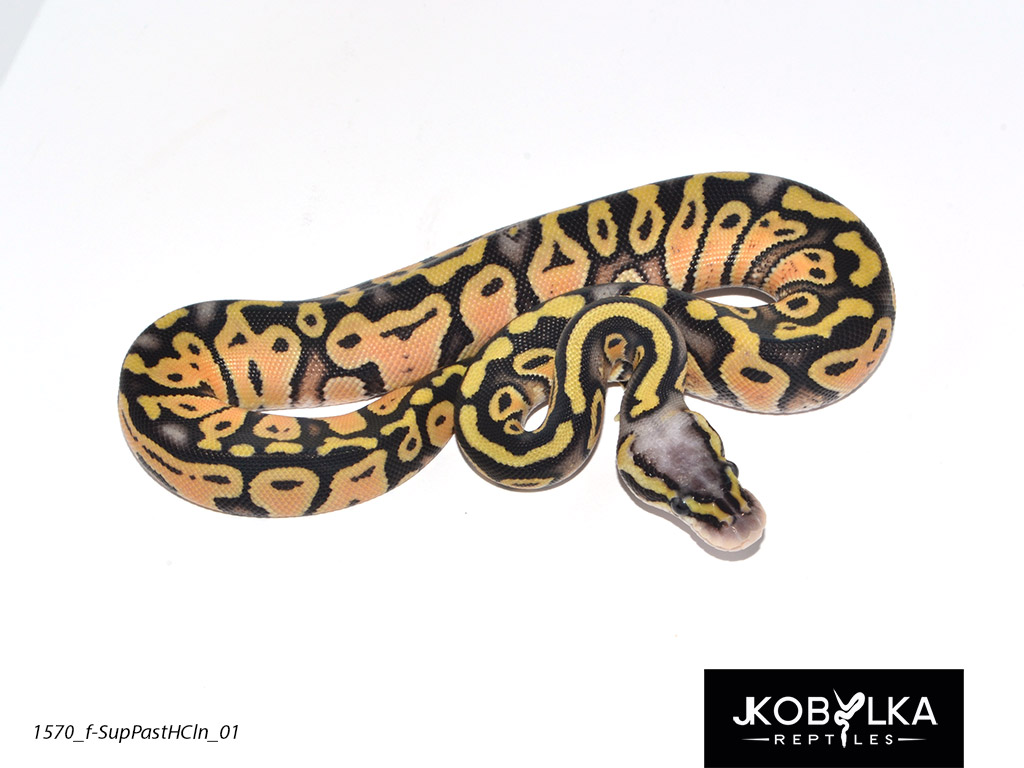
When we breed a Pastel to a Normal, the odds of gene inheritance are as follows:
50% Pastel
50% Normal
Pastel bred to Pastel:
25% Super Pastel
50% Pastel
25% Normal
And finally, Super Pastel bred to a Normal:
100% Pastel
Now, let’s combine two different mutations. We’ll take Pastel and breed to another dominant gene, Spider.
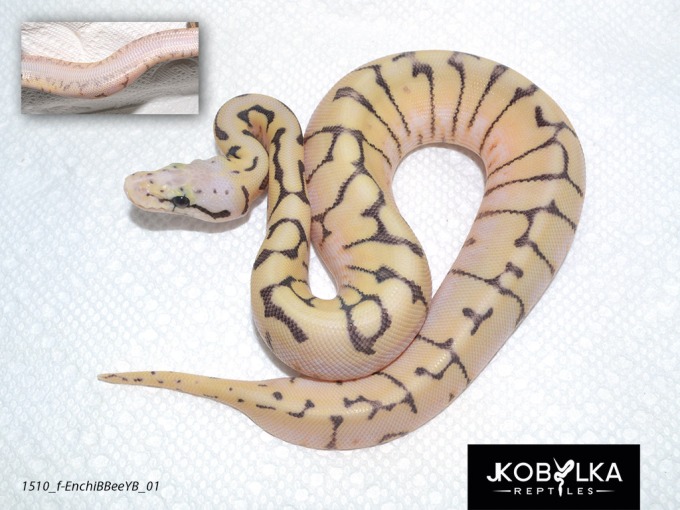
Pastel x Spider results in:
25% Bumble Bee (Spider Pastel)
25% Pastel
25% Spider
25% Normal
Bumble Bee bred to a Normal:
25% Bumble Bee
25% Pastel
25% Spider
25% Normal
As you can see, breeding a Pastel x Spider OR breeding a Bumble Bee x Normal results in the exact same odds for the offspring.
With that as a primer, let’s move into how allelic genes work. In this article, we will refer to the phenomenon as “Acts Like Super” or ALS, although the technical name is Compound Heterozygous. This refers to when two Alleles (alternate forms or varieties of a gene) meet at the same Locus (the location of allelic genes on the chromosome) creating a genetic mutation composed of two different genetic ingredients.
The slang term “Acts Like Super” was derived to define two distinct genes that pair at the same locus but have different – albeit compatible- alleles. The resulting combo generally has a dramatic visual expression. However, unlike a typical two gene combo, when this animal is bred to a normal, the combo cannot be reproduced. All offspring must receive one copy of one of the genes, but cannot receive both.
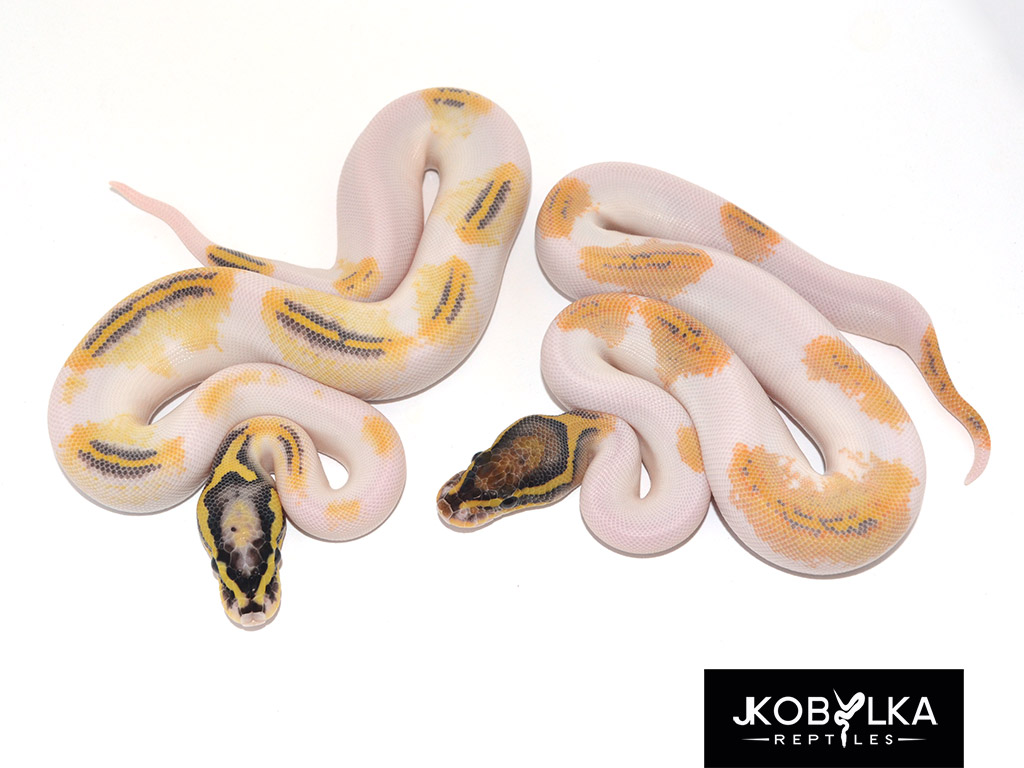
To understand why, it’s important to note once again the difference between an ALS and a standard double mutation. With a combo such as a Pastel x Spider (as discussed earlier), we are looking at two distinct Locus sites to define the presence of these genes. Pastel does NOT share the same Locus as Spider. With ALS we are seeing two genes on the SAME locus and the resulting pair of genes makes the visual combo. This is basically the same type of behavior we see with “super form” genetics.
So, what does this mean with regards to breeding? Let’s look at a few pairings using Yellowbelly and Spector as our base “ingredients.”
Yellowbelly and Spector genes are visually distinct and make different combos, but when combined together, the work as a Compound Heterozygous animal or ALS.

Yellowbelly x Spector producesthe following offspring:
25% Super Stripe (Yellowbelly Spector)
25% Spector
25% Yellowbelly
25% Normal
Super Stripe x Normal:
50% Yellow Belly
50% Spector
Notice that unlike when we bred Bumblee x Normal, no normals or combination offspring are possible.
As with all the genetics, it can be hard to initially wrap your mind around these concepts. But as you start dealing with these unique genes more, it will become easier to understand.
Now that you’re an ALS genius, check out the list of currently known allelic genes in Ball Pythons. (Updated December 2022)
Incomplete Dominant
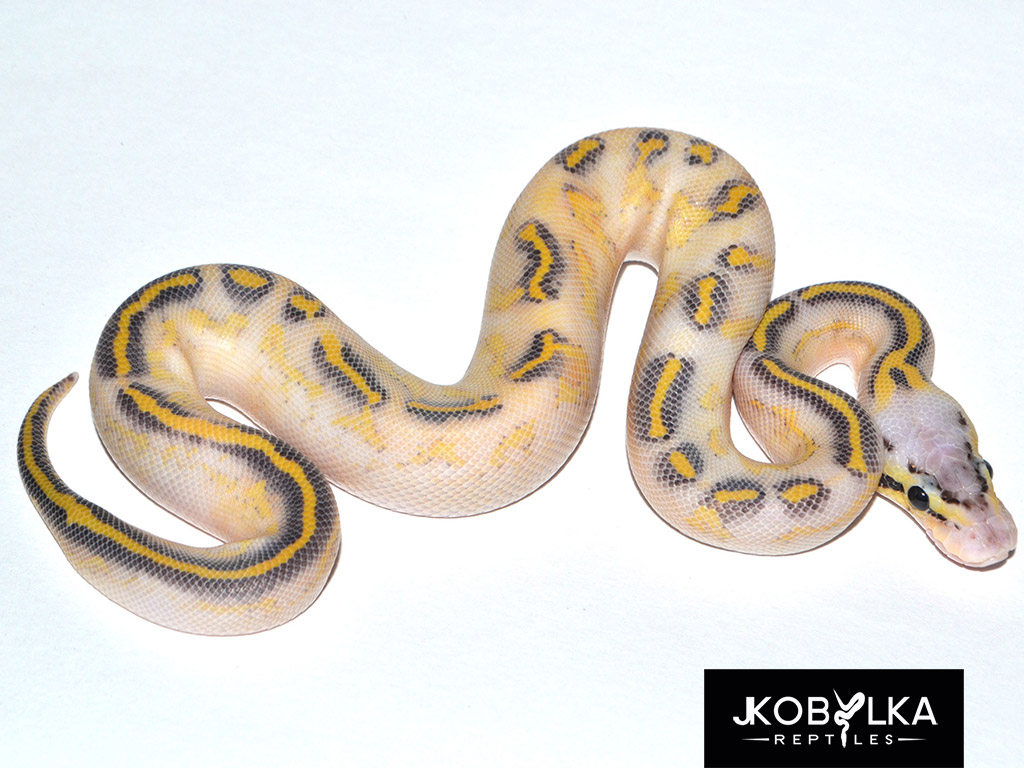
Yellow Belly Complex:
Spector
Spark
Gravel
Asphalt
Flare
Yellowbelly
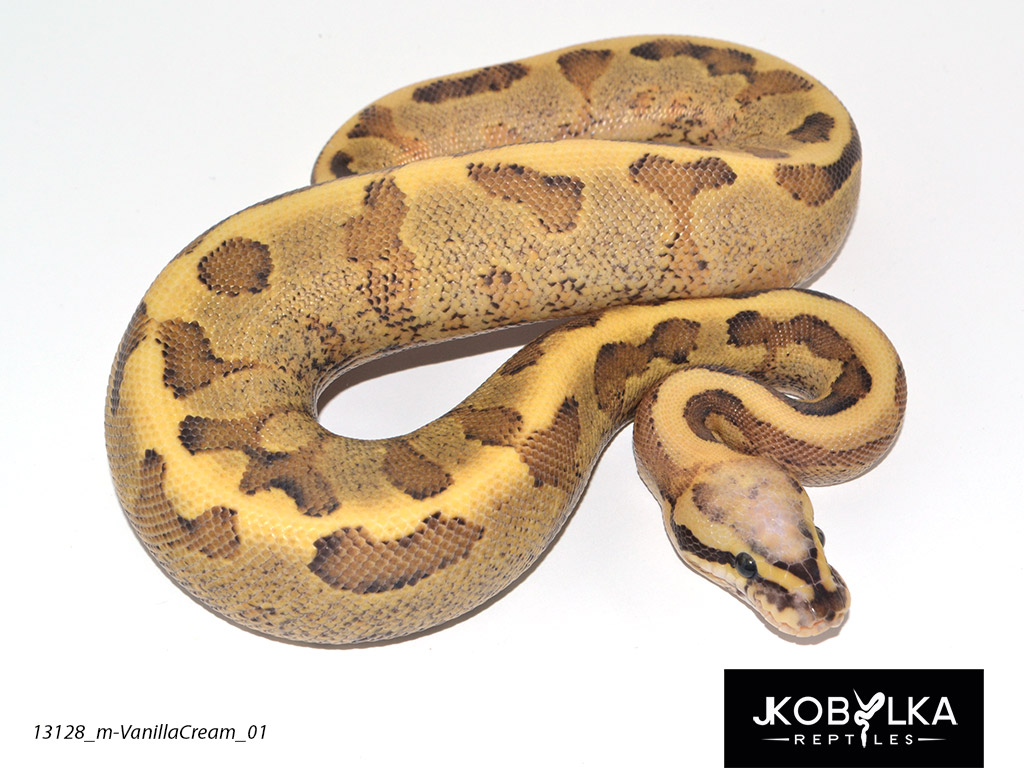
Fire/ Black Eyed Lucy Complex:
Fire
Lucifer
Sulphur
Disco
Vanilla
Thunder
Coffee
Flame
Ember
Mota
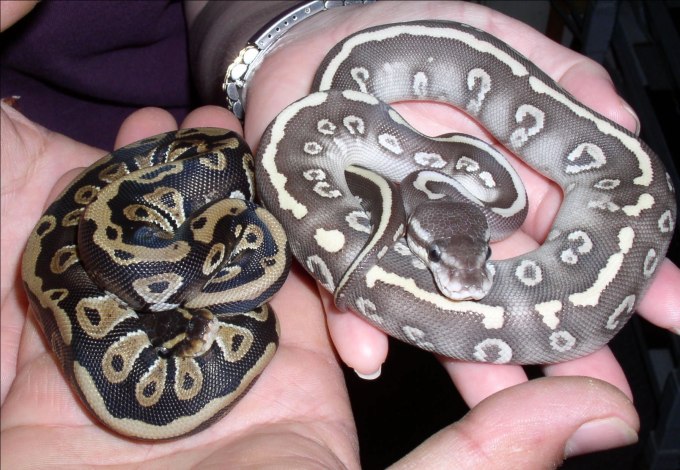
Blue Eyed Leucistic Complex:
Lesser
Butter
Mojave
Mocha
Phantom
Mystic
Russo
Special
Bamboo
Daddy
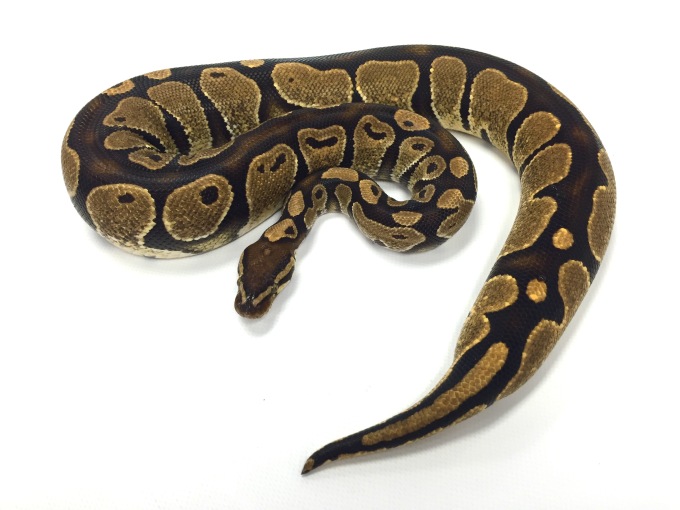
Cinny / Black Pastel Complex:
Black Pastel
Cinnamon
Enchi
Lori
Het Red Axanthic
Brown Back
Green Pastel
Huffman
Spider Complex:
Spider
Blackhead
Chocolate
Spotnose
Wookie
Cypress
Champagne
Hidden Gene Woma
Woma
Bongo
Recessive:
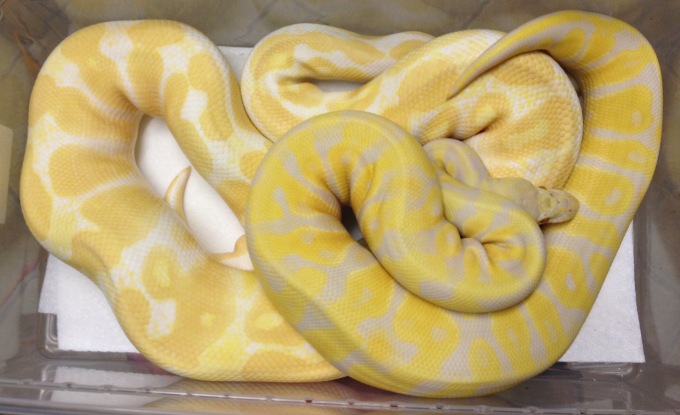
Albino Complex:
Candy
Toffee
Albino
Clown Complex:
Cryptic
Clown
